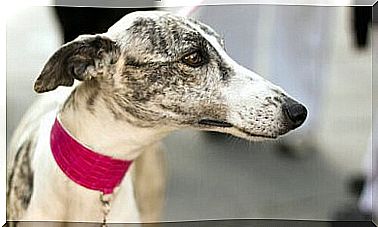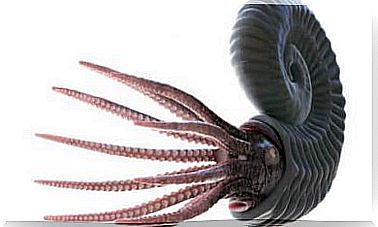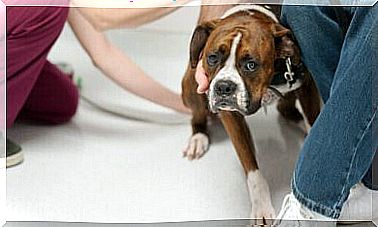Amnesia In Pets: Learn More

At a certain age, two out of four dogs can suffer from Alzheimer’s disease, called cognitive dysfunction. What are the symptoms? How to take care of amnesia problems in pets?
Amnesia in pets: symptoms in dogs
Cognitive dysfunction syndrome occurs in dogs over eight years of age. The main signs of amnesia are: changes in the animal’s habitual behavior and disorientation.
As with humans, as they age, a dog’s brain deteriorates. Over time, cognitive functions degenerate. That is, the ability to learn decreases along with loss of vision, hearing and smell.
A dog is considered elderly when he is over 10 years of age. It’s normal for the behavior to change and he’s no longer the playful pet he used to be.
Among the variations in dog behavior, there is the need to sleep longer and decreased energy. Also, there is little patience with other animals and children. In fact, the dog does not become aggressive, but tries to be alone and quiet, away from what he finds irritating.
Other changes that owners notice is the pet’s indifference towards them. The animal no longer shows the same affection as before, for example, when receiving them after their absence.
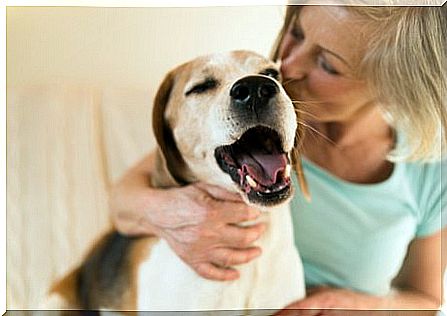
Different and strange behaviors
Along with amnesia, erratic behavior can begin to occur. The dog stands in the middle of the yard looking at a fixed point. Sometimes, he ends up falling asleep standing up or having no reaction when offered a toy that was previously irresistible to him.
Canine amnesia also manifests itself in behaviors that may seem strange to their owners. They forget about the goal of going out into the yard or get disoriented in familiar places.
In their daily routine, they even forget that they need to take care of their needs or respond to the owner’s orders. In the animal’s physical state, aging changes are also evident.
The dog slows down, having difficulty going up and down stairs and walking long stretches. Vision and hearing deteriorate. Therefore, it is difficult for the animal to recognize the usual places and people with whom it lives.
The owner’s reaction
These changes are something that causes anguish in the owners. This is because the animal is no longer the same, nor does it respond to caresses and games as before. However, with some special care, the animal can have a comfortable life.
If necessary, the veterinarian will recommend medication to counteract the deterioration and illnesses that amnesia causes. Unfortunately, cognitive dysfunction syndrome is incurable.
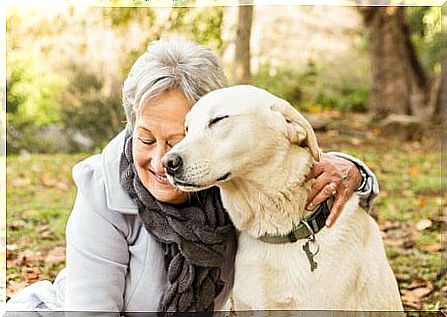
Amnesia in pets: care
A dog with this condition needs to be treated with care and patience. If the dog normally already needs a pleasant and welcoming environment, now even more. Times must be respected. Perhaps our friend will have to lie down longer than before, napping in his favorite corner.
The fact that the dog prefers tranquility does not mean that he should be left alone all day. An elderly pet must be accompanied by its owners. Therefore, it is quite possible that physical activity is now more difficult. In any case, daily walks of shorter duration and at a slower pace should continue.
Drastic changes in routine, such as a trip or a change of residence, are difficult for the dog to assimilate. Above all, these events affect memory and accelerate amnesia and other degenerative symptoms of your cognitive faculties.
For this reason, it is necessary to plan well with whom to leave your pet. If you choose to take it, you will have to try not to change your routines. This way, you can prevent the dog from becoming disoriented and lost.
In some cases, owners prefer to euthanize so as not to see the pet suffer. In addition, they try to avoid the consequences of changes in behavior at home. However, affectionate treatment, play, and short walks have been shown to help slow the pet’s cognitive deterioration.
At the first signs of cognitive problems in our pet, it is essential to go to the veterinarian for a thorough evaluation. An early diagnosis is vital to offer the elderly animal a better quality of life.


